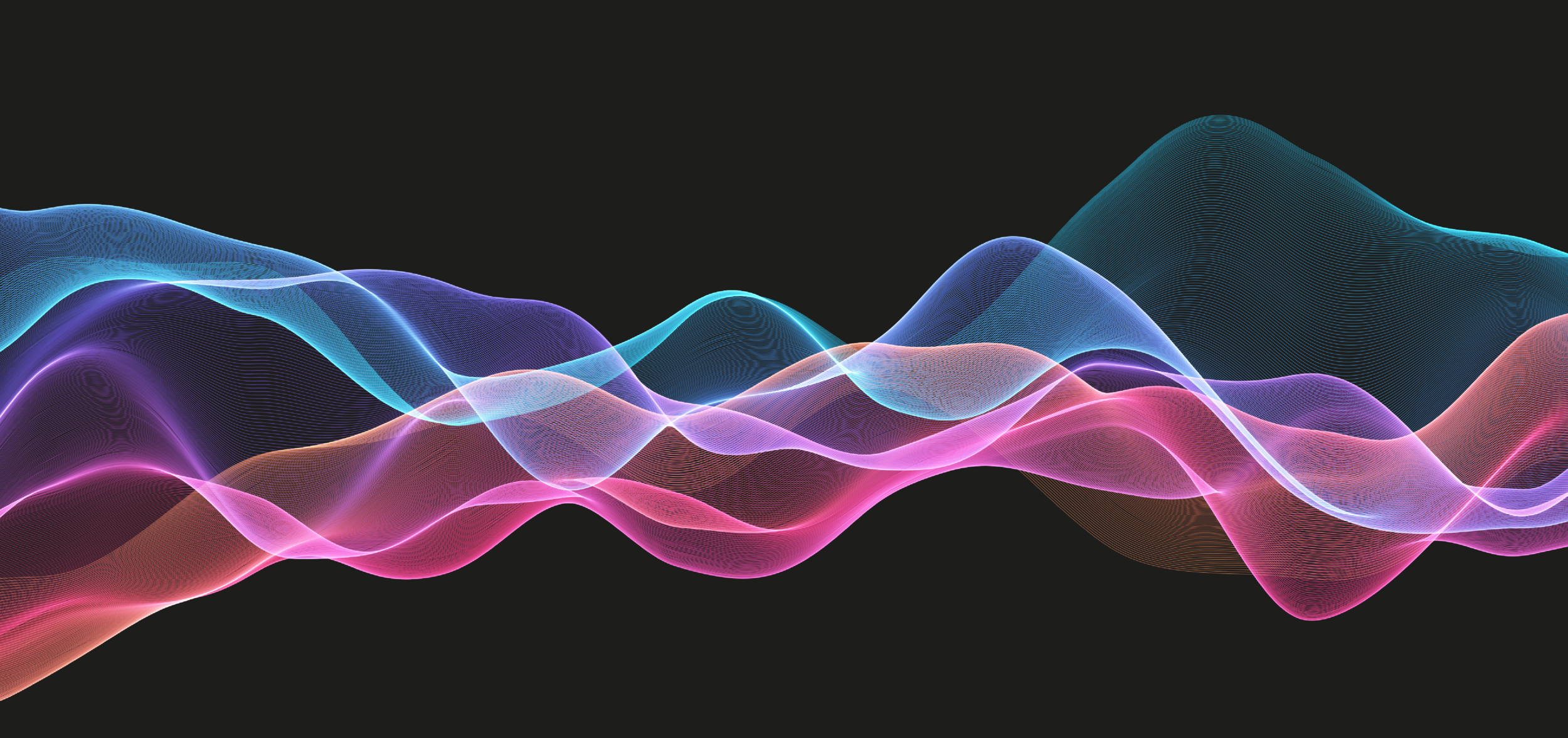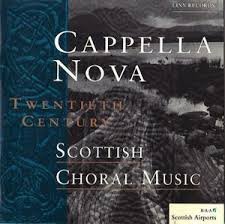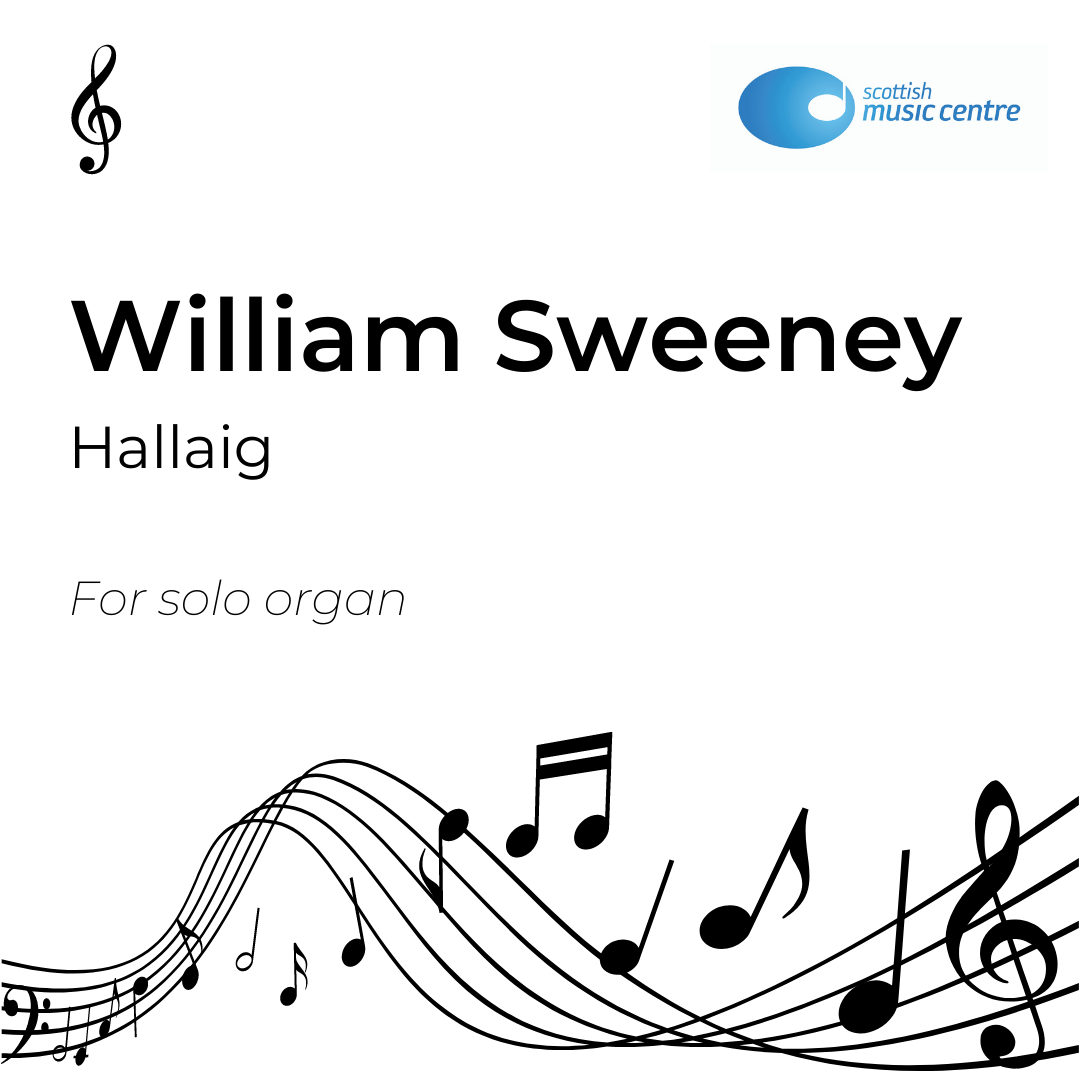
William Sweeney
World Premiere
Westlin Winds in Autumn
The Glasgow Baron’s final FOUR SEASONS IN ONE DAY, new concerti after Vivaldi by four Scottish composers with four different soloists. William Sweeney writes for virtuoso Sarah Watts, fresh from her annual bass clarinet course on the Isle of Raasay. Robert Burns' warm, autumnal love song, Now Westlin Winds, inspires, a nod to the sonnets Vivaldi used to describe his own four seasons.
-
Thu, 21 April 2022
19:30 – 22:00 BST
-
Govan & Linthouse Parish
796 Govan Road
Glasgow
G51 2YL
-
Benjamin Michaels of the Hill Quartet performing mar ròs a chaill… by William Sweeney, Royal Academy of Music, London, 9 March 2021.
“…he emerges as a first-rate composer, who urgently addresses, and achieves truthful utterance through the ‘matter of Scotland.”
NEIL MACKAY, TEMPO, 1994
Born in Glasgow, on Jan 5th, 1950. William Sweeney is a Scottish composer. He studied at the Royal Scottish Academy of Music and Drama (1967–70), and at the RAM (1970–73) with Alan Hacker (clarinet) and Harrison Birtwistle (composition). He worked as a woodwind tutor for a number of years and later taught composition at the University of Glasgow. He won the Aeleph Prize for composition in 1981, and has twice been awarded the McEwan Commission from the University of Glasgow (1981 and 1989).
Sweeney's interest in Scottish traditional music is audibly present throughout his oeuvre. The textures of Salm an Fhearainn (1987), for 18-part a cappella choir, are derived from the heterophonic style of Gaelic psalm-singing, while Nine Days, for clarinet with drone, is cast in the form of a piobaireachd. The melody is varied not only in its ornamentation, as in traditional pibroch, but in its contour; also modified is the instrument's tone-colour, through alternative fingerings. In An rathad ùr (1989), for tenor saxophone and orchestra, the concern is with a reconciliation of art music with jazz, and a blurring of the distinction between improvised (or more freely structured) and precisely notated music. In the rhythmic language of such works as Maqam (1984) and The Heights of Macchu Picchu (1988), with their exploration of ostinato and other techniques of varied repetition, Sweeney has been influenced by ancient Greek poetry as well as by Indian and Arab traditions.
Biography from Oxford Music Online
READ MORE
Education and Early Career
- 1950 – Born in Glasgow
- 1961-67 – Knightswood Secondary School
- 1967-70 – Royal Scottish Academy of Music and Drama: W.T.Clucas (Clarinet), Frank Spedding (Harmony and Counterpoint), Sibelius Essay prize in all three years, Clarinet, Composition and Sight-reading Prizes in year 3, DRSAM (Performance), DRSAM (Teacher)
- 1970-72 – Royal Academy of Music: Alan Hacker (Clarinet), Harrison Birtwistle (Composition).
- 1975-80 – Woodwind instructor for Central Regional Council, full-time
- 1981-85 – Woodwind instructor for Central Regional Council, part-time, Teaching all woodwind and saxophones, forming and then developing the Regional Wind Band from a woodwind training group into an orchestra capable of performing Berlioz’ Symphonie Fun bre et Triomphale in its fifth year of existence.
- 1983-89 – Prepared clarinet students for performance components of degree programmes at the University of Glasgow.
Educational Work
- 1986-1997 – Contributed to the development of a new style of educational work, mainly in association with the Scottish Chamber Orchestra and Paragon Ensemble. Acting as composer-in-residence, these schemes integrated orchestral performers into creative workshops in schools on projects involving a wide range of client groups including special needs as well as school music Staff Development.
Examples
- 1987 – Composer-in-residence for the first Strathclyde Concerto Project. the elements danced – devised for performance by the Scottish Chamber Orchestra and ensembles from East Dunbartonshire Schools, spread through a number of spaces in the Kelvingrove Art Galleries.
- 1997 – Playing to the Gallery with the Paragon Ensemble, which exploited the different galleries, levels and exhibits of the Gallery Of Modern Art in Glasgow, and showcasing a number of compositions by Glasgow Higher Music candidates.
- 1987-1990 – Honours Composition options taught at University of Glasgow.
- 1987-1997 – Composition tutor at the Music School of Douglas Academy.
- 1990- 95 – External Examiner for the first cohort of the BEd in Music (RSAMD/Strathclyde University/St Andrews College), External Moderator for BA in Music at the RSAMD.
- 2003 – Composition Fellow at Veruela International Composition Summer School, Aragon, Spain.
Performance
- 1974 -1992 – Clarinetist, performed with the SPNM and the Park Lane Group, gave recitals, and made a number of recordings for BBC Radio 3, including premieres of works commissioned from Edward McGuire (1978), John Lunn (1983) and Gordon MacPherson (1987). Conductor, directed a wide range of amateur, student and professional ensembles and orchestras (BBC SSO, SCO) in theatrical and concert performances as well as in recording sessions for radio, television and film.
Musical Works
Many works have been written for the clarinet, but the output covers a wide range of instrumental, orchestral, electronic and vocal forces. Commissions have been from such diverse organisations as the BBC, Paragon Ensemble, St Magnus Festival, Musica Nova, Capella Nova, Mayfest, the STUC, Glasgow University, RSAMD, Moving Music Theatre, McNaughten Concerts, Cryptic and the Jim Henson Organisation. Equally diverse are the genres explored, from concert works through music for theatre, dance, movement, film and television and including a number of works designed for use in music in education. The opening of two important national buildings have led to commissions: irc an dualchais (Inheritance Ark), commissioned for the opening of the Museum of Scotland in November 1998 and Na th inig anns a churach ud (All that came in that one coracle), commissioned for the opening of Arainn Chaluim Cille (the new campus for the Gaelic College on Skye) in 1999.
After the early influence of the European avant-garde, in particular Karlheinz Stockhausen, a period of reflection in the middle 1970s led to the re-establishment of a tonal idiom. Apart from an enduring attachment to the music of Leos Janacek, the two main inspirations of the music are traditional gaelic music and jazz ; these can be found combined in An Rathad Ur for jazz saxophonist and orchestra, although the influence of one or the other of these musical streams is seldom far away in any of the works.
1980s
During the 1980s, commissions from the BBC, St Magnus Festival and the STUC (for the Scottish National Orchestra) lead to a number of orchestral works (Maqam, Sunset Song, Cumha) exploring the developmental potential of traditional musical styles and forms, although these processes had begun to be explored in works such as Nine Days (1976), The Heights of Macchu Piccu (1978), An-og Mhadainn (1979) and String Quartet No.1 (1981 – McEwen Commission from the University of Glasgow). Towards the end of the decade, the possibilities for the incorporation of improvisation into large-scale musical structures was explored in An Rathad Ur (1988) and El Pueblo (1989). The gaelic stream is perhaps most quintessentially represented by Salm an Fhearainn (1987), described by Purser in his Scotland’s Music: ‘It is an astonishing fact that Gaelic had never been set or sung in any extended classical composition until William Sweeney’s Salm an Fhearainn (Psalm of the Land). This historic work in essence reproduced and enlarged upon Gaelic psalm singing to produce sounds and textures for a capella voices that had never been heard in a classical context.’
1990s
The main focus of development in the 1990s was on three major works: A Drunk Man Looks at the Thistle (1992), The Woods of Rassay (1993) and An Turus (The Journey). The first of these is a music-theatre (later recorded for radio) setting of much of MacDiarmid’s gigantic poem exploring his vision of the Scottish psyche. The second is a large-scale setting of Sorley MacLean’s poem in Gaelic, uniting a vision of natural forces, landscape and artistic crisis. The third, to a libretto by Aonghas MacNeacail, was the first full-length opera for professional forces in the Gaelic language. An Turus was commissioned by Paragon Ensemble, Scotland and premiered by them in 1998.
Among works from the later 90s were: incidental music for a film An Iobairt (The Sacrifice), (Scottish BAFTA Award for Best Music, 1997) directed by Gerda Stevenson and scripted by Aonghas MacNeacail, and Heave Awa House, commissioned by the Scottish National Jazz Orchestra.
2000s
Recent works include The Poet Tells of His Fame for Solo Cello and live electronics, Fergusson, a Song Cycle based on poetry in Scots by Robert Burns and Robert Fergusson for Tenor and Harp, a String Quartet (No.3) and Pro Patria, a setting of words by the 16th century Scottish scholar and poet, George Buchanan.
The composition of String Quartet No.3 was made possible by a semester of study leave from the University of Glasgow. It was premiered by players from the Paragon Ensemble and subsequently performed and recorded (for Delphian, 2007) by the Edinburgh Quartet. Critical reaction has been strong and the work indicates a new stage in the development of large-scale forms in a tonal idiom while using structural techniques which avoid the precedents of sonata-form and its derivatives. The possibilities opened up by this work will form a key part of future developments and indicate a new compositional direction enhancing the discoveries of the past decades of work.
In 2006, a Creative Scotland Award lead to the creation in 2007 of Schemes, Blues and Dreams, a composition combining live performance and electro-acoustics, exploring the sensibility of Scottish musicians of the 1960s who defined their identity through the music of Black America. The project featured internationally recognised blues harmonica player Fraser Spiers, placed in an electro-acoustic setting based on live processing of sampled and performance material.
More recent works have included Songs of Connacht and a setting of Brian Merriman’s The Midnight Court for the Dunedin Consort, a Sonata for Cello and piano (Winner in the Solo/Duo category of the BASCA/Radio 3 British Composer Awards 2011, and plans for 2012 include a new, site-specific work for the Lammermuir Festival at Tantallon Castle.
Sweeney’s Sonata for Cello & Piano won the title for Intsrumental Solo or Duo at the 2011 British Composer Awards. Eleven awardees were presented across 13 categories: Anthony Payne, Huw Watkins, Michael Zev Gordon, Lucy Pankhurst, Julian Anderson, Orlando Gough, Tommy Evans, John Barber, Richard Bullen, Bent Sørensen and Graham Fitkin.
Awards
- 1981 – McEwen Commission (University of Glasgow)
- 1981 – Aeleph Composition Prize
- 1988 – McEwen Triennial Commission (University of Glasgow)
- 1997 – Scottish BAFTA Award for Best Music, for music for the film An Iobairt (The Sacrifice)
- 2003 – ARAM (Associate of the Royal Academy of Music)
- 2006 – Creative Scotland Award
- 2011 – Winner in the Solo/Duo category of the BASCA/Radio 3 British Composer Awards 2011
Works
Many works from the catalogue below have been broadcast and/or performed internationally . Some have been issued as LP or CD recordings . All works, with the exception of four early, and one later piece, were commissioned.
Instrumental
- 1975 -78 – Paraphrases on Poems by Rilke, for Piano
- 1976 – Nine Days, piobaireachd for Clarinet
- 1979 – An-og Mhadainn (The Young Morning), for Basset-clarinet
- 1981 – String Quartet No.1
- 1982 – Trio, for Clarinet, Viola and Piano1982 – Sextet, for Clarinet, Piano and String Quartet1982 – Landscape, for three Guitars
- 1984-95 – Life Studies (I -VII), for Clarinet and Piano
- 1985 – Sonata, for Viola, Marimba and Claves
- 1986 – Fantasias, for Thirteen Wind Instruments
- 1987 – Sweeney Astray, for Clarinet Duet (version for Clarinet and Viola 2003)
- 1990 – Hallaig, for Organ
- 1991 – Para Subir, for Soprano Saxophone, Clarinet and accompaniment 1995 – Quintet, for Clarinet and String Quartet
- 1998 – Galloglas, for Brass Quintet
- 2001 – String Quartet No.2 (Remebering Lepo)
- 2003 – Cha B ann Grad, for Clarinet ensemble
- 2004 – String Quartet No.3
- 2005 – Cha B’ann Grad, for Saxophone ensemble
- 2006 – Night songs, for Bass-clarinet, String Trio and Piano
- 2006 – Paraphrase on Pro Patria, for Trumpet
- 2007 – Gabhail a Chreig (Taking the Rock), for String Ensemble
- 2008 – Tree o Licht, for Two Cellos
- 2010 – Sonata for Cello and Piano
Orchestral
- 1983 – Maqam, for Orchestra
- 1983 – Glasgow, for Strings and Percussion
- 1985 – Sunset Song, for Symphony Orchestra
- 1989 – Seann Orain (Old Songs), for String Orchestra
- 1987 – Cumha (Elegy), for Orchestra
- 1988 – An Rathad Ur (The New Road), for Jazz Saxophonist and Orchestra
- 1989 – Air, Strathspey and Reel, for Symphony Orchestra
- 1990 – I Will Wait, for Choir, Orchestra and Jazz Trio
- 1991 – St. Blane’s Hill, for Symphony Orchestra
- 1996 – Sweeney Astray, for Concert Wind Band
- 1999 – The Caledonian Antisyzgy – Portrait of Hugh MacDiarmid, for Jazz Orchestra
- 2001 – Heave Awa Hoose, for Jazz Orchestra
- 2001 – The Rim of the Sky, for Symphony Orchestra and voices
Solo Vocal with Ensemble or Orchestra
- 1974 – Three Poems from Sangschaw (MacDiarmid)
- 1977 – Two Concert Arias (Quasimodo)
- 1978 – The Heights of Maccu Piccu (Neruda)
- 1979 – A Vision of Scotland (MacDiarmid)
- 1989 – El Pueblo (The People) (Neruda)
- 1991 – Soruidh Slan? (Farewell Forever?) (Niall Mor McMhuiredhaigh /Aithbhreac Inghean Coirceadail)
- 1992 – A Drunk Man Looks at the Thistle (MacDiarmid)
- 1993 – The Woods of Raasay / Coilltean Ratharsair (Sorley MacLean) 1994 – Seeking Wise Salmon (MacNeacail)
- 1994 – Agua (Water) (Lorca)
- 1999 – Na th inig anns a churach ud (All that came in that one coracle) (MacNeacail)
- 2001 – Fergusson, for Tenor and Harp (Burns, Fergusson)
- 2008 – Songs of Connacht, for Tenor and Baroque Ensemble (Douglas Hyde, Synge)
- 2012 – The Midnight Court, for 8 Voices and Baroque Ensemble (Brian Merriman trans. Frank O’Connor)
Choral
- 1987 – Salm an Fhearainn (Psalm of the Land) (MacNeacail)
- 1987 – An Seachnadh (The Avoiding) (MacNeacail)
- 1992 – Two Lyrics (MacDiarmid)
- 1998 – Flight (Rigg)
- 1998 – irc an dualchais (Inheritance Ark) (MacNeacail)
- 2006 – Pro Patria (George Buchanan)
- 2009 – The Old Year (John Clare)
- 2012 – The Little Rose (Brecht)
Opera
- 1997 – An Turus (The Journey) (MacNeacail)
Electro-acoustic
- 1987 – Springburn, for Clarinet and midi-generated electronic score 1989 – Sharakan, for Ensemble and midi-generated electronic score
- 2003 – The Poet Tells of His Fame, for Solo Cello and live electronics
- 2006 – Schemes, Blues and Dreams, for Solo Harmonica and live electronics
Music in Education and the Community
- 1980 – Voyage of Discovery, Chamber Opera for Primary Schools
- 1981 – Sonata with Some Pine Trees, (Neruda) for Voices and Ensemble1981 – Water Music and Natural Philosophy (Rush), for Chorus and Orchestra
- 1982 – Ceol Beag, for solo Cello and Orchestra
- 1986 – Bagpipe Music, for Orchestra and Ensembles
- 1987 – Scenes from Old Stirling, for mezzo-soprano and Orchestra
- 1988 – the elements danced…, for Ensembles
- 1988 – Three Poems of William Soutar, for Chorus and Orchestra
- 1990 – Concerto Grosso, for Clarinet Choir, Strings and Timpani
- 1991 – A Set For the Kingdom, for String Orchestra
- 1993 – Birth/Procession, for Orchestra
- 1993 – Bhirlinn Taibhseil (The Ghost Longship), for Concert Wind Band
- 1993 – October Landscapes, for Youth Orchestra
- 1995 – A Song from South Uist, for Recorders, Strings and Orchestra
- 1996 – War Ends in Europe, for Women’s Choir and Ensemble
- 1996 – A Bheinn Air Chall (The Lost Mountain), for Concert Wind Band 2001 – The Heart of Us, for Soprano, Northumberland Pipes, Brass Band, Children’s and Adult Choirs
- 2006 – Slow Air and Reel, for Double Reed Choir
- 2006 – Three Songs (Soutar), for the National Youth Choir of Scotland
Music for Theatre, Film and Television**
- 1989 – 2 Scenes for The Ghost of Fafner Hall
- 1993 – The Loch: Autumn
- 1996 – An Iobairt
- 2007 – The Memorandum
Music






![William Sweeney: mar ròs a chaill..... [download]](https://images.squarespace-cdn.com/content/v1/5f3690f6995b741710ab4824/1668601449167-GD7JRAY1X15G5KRSBASY/sweeney_marrosachaill_cover.png)

![William Sweeney: Òran-Buidheachas [download]](https://images.squarespace-cdn.com/content/v1/5f3690f6995b741710ab4824/1619191381313-HWRCS9NHMZL751WJMRP0/cover.png)
![William Sweeney: The Tree o' Licht [download]](https://images.squarespace-cdn.com/content/v1/5f3690f6995b741710ab4824/1612468434312-41DAEVXHBPLUNLG3DO1H/sweeney+licht.png)
![William Sweeney: Nine Days [download]](https://images.squarespace-cdn.com/content/v1/5f3690f6995b741710ab4824/1612468595877-BXLXPGSI02NWPQ7SPS0U/sweeney-days.png)
![William Sweeney: March Air [download]](https://images.squarespace-cdn.com/content/v1/5f3690f6995b741710ab4824/1612468664671-8JAWNHBMSVQ1CSTF7CDN/sweeney-march.png)

![William Sweeney: Life Studies [download]](https://images.squarespace-cdn.com/content/v1/5f3690f6995b741710ab4824/1612469185601-DCECSD3CT50VLJFAJONI/sweeney-life.png)
![William Sweeney: Hallaig [download]](https://images.squarespace-cdn.com/content/v1/5f3690f6995b741710ab4824/1612469289018-2AH61FUWIJZSR5R50ESR/sweeney-hallaig.png)

![William Sweeney: Caolas [download]](https://images.squarespace-cdn.com/content/v1/5f3690f6995b741710ab4824/1612469394528-OM9H7ES5TBCGJ4693GPE/sweeney-caolas.png)
![William Sweeney: Casida de la Muchacha Dorada [download]](https://images.squarespace-cdn.com/content/v1/5f3690f6995b741710ab4824/1612469521199-4X2P1ELZYV6FOBSJ7O7O/sweeeney-casida.png)
![William Sweeney: Chelovek [download]](https://images.squarespace-cdn.com/content/v1/5f3690f6995b741710ab4824/1612469630822-UNGUBF98DLHMRTH9I5X4/sweeney-chelovek.png)
![Ten Wee Drams [download]](https://images.squarespace-cdn.com/content/v1/5f3690f6995b741710ab4824/1606154852226-A7ZV30CBQL6DH35M6X5H/weedrams_cover.jpg)